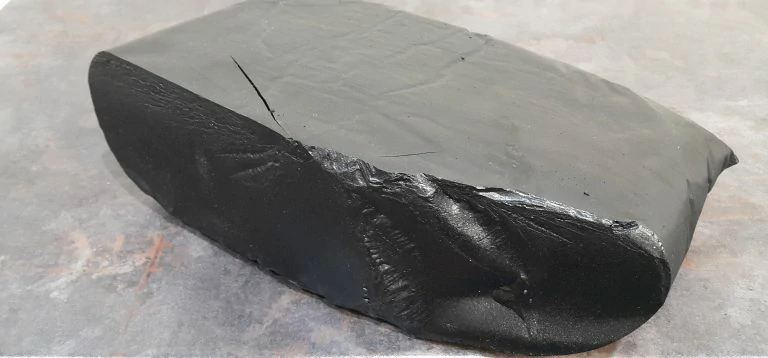Bitumen Oxidized under MONAMOR Co in Turkey based on high quality material is produced. We are professional in Oxidized Bitumen and whole Modified and Polymer Bitumen Grades and also Bitumen Penetration in road Asphalt usage and active in more than 90 countries whole over the world from 2015.
We are located in Turkey and are one of the market leaders in the supply of a wide range of raw Bitumen products, such as Oxidized Bitumen (blown asphalt, blown bitumen, oxidized asphalt), Penetration Grade Bitumen, Viscosity Grade Bitumen, Performance Grade Bitumen, Polymer Modified Bitumen, Bitumen Emulsion, and Cutback Bitumen to worldwide consumers.
our products
If you are looking for high-quality bitumen products, you are at the right place! As Monamor Co, we supply Oxidized, Penetration, and other kinds of bitumen. It is important to work with a company capable of selecting the right and the best bitumen for the success of its customers.
Since 2015, we have been helping our customers build strong, durable, long-lasting roads. We will provide our expertise to enhance your projects. Basically, we have two kinds of bitumen.
Oxidized Bitumen supplied by Monamor, also known as blown asphalt or bitumen, offers several advantages making it a preferred option in various applications.
Enhanced Durability: The controlled oxidation process that Oxidized Bitumen undergoes significantly improves its physical features.
Resistance to Environmental Elements: Oxidized Bitumen exhibits excellent resistance to UV rays and water damage.
Consistency in Performance: The controlled manufacturing process ensures consistent quality.
Adhesive Properties: Oxidized Bitumen possesses superior adhesive properties, making it effective in bonding with different surfaces.
Versatility in Applications: Oxidized Bitumen is versatile and finds applications in diverse areas like pevement construction, waterproofing, and roofing.
Longevity of Infrastructure: Longevity of oxidized bitumen reduces the need for frequent maintenance and replacement, resulting in cost savings over the lifespan of the project.
Cost-Effective Solution: Its durability and longevity contribute to overall cost savings by reducing the need for frequent repairs and replacements.
High Softening Point: It typically has a higher softening point compared to traditional bitumen. This characteristic makes it suitable for applications where higher temperatures are expected, ensuring stability and preventing deformation.
Penetration bitumen is an essential element in road construction. This high-quality element supplied by Monamor has several advantages such as:
Consistent Road Performance: It ensures a uniform and reliable performance of roads, even in the face of varying temperatures and traffic loads. The consistent quality of penetration bitumen contributes to the overall stability of road surfaces.
High Viscosity Index: This property allows it to maintain its viscosity across a wide temperature range, making it suitable for regions with diverse climatic conditions. Roads constructed with high-viscosity bitumen remain resilient and durable.
Low-Temperature Susceptibility: Penetration Bitumen exhibits low-temperature susceptibility, meaning it retains its form and properties even in colder temperatures. This characteristic provides stability and prevents cracking.
Adherence to International Quality Standards: Top-grade Penetration Bitumen, such as the ones offered by Monamor CO, adheres to international quality standards. This commitment to quality guarantees that the bitumen meets specific performance criteria, providing reliability and longevity for road construction projects.
Versatility in Applications: Its adaptability to different project requirements makes it a preferred choice for creating durable and high-performance asphalt pavements.
Resistance to Heavy Traffic Loads: Roads subjected to heavy traffic loads require bitumen that can endure the stress and strain even under intense traffic conditions.
Cost-Effective Solution: Its durability and ability to endure various conditions contribute to reduced maintenance costs over the lifespan of the road.
Ease of Application: Penetration Bitumen is relatively easy to apply in road construction. Its workability allows for efficient and effective application methods, contributing to streamlined construction processes and project timelines.

Bitumen is a remarkable material derived from crude oil. It is mainly made of complex hydrocarbons, often accompanied by elements like
It plays a pivotal role in various applications, with one of the most prominent being road construction. In this content, we will provide valuable insights into what bitumen is, its production process, and why it’s indispensable for road construction.
Bitumen is a highly sticky component of petroleum, and it varies from a viscous, black liquid to a solid mass over extended time scales. In the United States, many people even industry leaders call the material asphalt.
The primary use of 70% of annual production is in road construction, binding gravel to create asphalt concrete. As it is a versatile material, it can be used in many different industrial areas.
Bitumen’s significance in road construction cannot be overstated, primarily due to its unique features and advantages. Here’s why it is an indispensable material for road construction:
Binder: This material acts as a binder, holding aggregate particles together, and creating a durable and cohesive pavement system.
Flexible: Its flexibility allows it to accommodate slight movements, preventing deformations caused by traffic loads, soil settling, or temperature fluctuations, ultimately increasing road durability.
Waterproof: It is known for its exceptional waterproofing capabilities, acting as an effective barrier against moisture and resisting freeze-thaw cycles. This extends the lifespan of roads in various climate conditions.
Durable: The combination of binding, flexibility and waterproofing features makes the material highly durable and resistant to the stresses of traffic loads.
Rut Resistant: Its viscosity and elasticity prevent repetitive deformations on pavements, ensuring a smoother and safer driving surface for all types of vehicles.
Easily Applicable: It can be applied at lower temperatures, reducing emissions and energy consumption during the construction process. Its ideal viscosity and elasticity make it easy to apply.
Sustainable: Bitumen is a sustainable solution as it can be reclaimed and reused from old pavements, including hot-in-place recycling.
Noise Reducer: It contributes to noise reduction on roads, enhancing the comfort of road users.
Versatile: It can be blended with other materials to enhance its performance characteristics, making it a highly versatile material.
Economic: The combination of its various characteristics, including being binding, flexible, durable, water-resistant, rut-resistant, easy to apply, sustainable, versatile, and noise-reducing, makes the material an economically sound choice for road construction.
In conclusion, even though 70% of bitumen is used for road construction, companies use this material for waterproofing, oil and gas, automotive, construction, railways, energy, and many other industries. Because of its versatile, flexible, durable, and sustainable structure, bitumen will be used more commonly in many other industries.

Oxidized Bitumen is a specialized form derived by introducing air into pure bitumen. This kind is also known as blown bitumen in different areas of the world. When compared to its pure counterpart, this bitumen type has a lower penetration grade and an elevated softening point. These features allow it to be used for specific areas.
Production of blown bitumen is achieved by introducing hot air reaching temperatures of 200 to 300 degrees Celsius into the penetrating grade bitumen in the refinery’s BBU reactor. In this method, the hydrogen atoms in the bitumen interact with oxygen atoms from the air, creating vapor. This vapor is then taken out of the oxidation chamber.
Oxidized Bitumen presents a spectrum of grades tailored to varying project needs.
The polymerization of asphaltene in blown bitumen due to air blowing rubberizes it. As a result, it is called Rubberized Bitumen, indicated by the letter “R”.
Numerical parts demonstrate the penetration degree and the softening point. For example, R115/15 shows a softening point of 115 and a penetration of 15.
Oxidized Bitumen finds diverse applications across several different industrial areas:
It is considered the most suitable material for road construction and maintenance. It is used as an additive in different pavement applications.
It can be used in various hydro projects like dam construction, hydraulic structures, or sand stabilization.
It can be used in roofing due to its water resistance, flexibility, adhesive properties, resistance to high temperatures, easy application, and price-performance features.
Corrosion protection, adhesion and surface protection, flexibility for surface movement, fastening of paving and flooring materials, resistance to temperature changes, water resistance, chemical stability, and ease of application are among the reasons for preference in flooring applications.
It is widely utilized in the gas and oil industry. For example, companies particularly prefer it for coating pipelines to shield them against rust or corrosion.
As it has adhesive properties, it can be used for board lamination and electrical distribution enclosures in the cable industry.
The inherent benefits of blown asphalt can be listed as follows: